Summary
In short:
I wrote an article that used a metaphor drawn from a Fiddler on the Roof line (“There was the time he sold him a horse, but delivered a mule”) to capture the disingenuousness around academic diversity rhetoric.
I was denounced as a racist for “drawing an explicit parallel of Black people with mules.”
This denunciation claimed there was a well-established racist trope in which Black people are viewed as mules.
There is no racist mule trope; the only paper Roberts cited to support the claim provided no evidence of such a racist “trope.”
Why Should You Care?
propaganda and how to separate it from truth
credibility of psychological science
rising illiberalism in academia
demonization in action by academics
the decline of academia
Academic Deepfakes

The concept of deepfake originated in the study of disinformation online; it originally referred to manipulating images and videos to communicate things that are manifestly false (such as a video of a public figure seemingly making a statement they never made). Waever & Buzan then extended the concept to academic articles making shit up. This is how they describe academic deepfake methods:
“If there is a methodology at play, it is deepfake in the sense that if you break a corpus of text down into small fragments, you can reassemble it to say anything you want. Deepfake as analogy does not imply any claim about intentional falsehood. The analogy is to the technique: making somebody ‘speak’ by using splinters from them reassembled to produce meaning disconnected from the original texts.”
They identify the following features of academic deepfake methodology:
Guilt by association
Errors in citation and attribution
False arguments
Twisting of concepts to generate racism
Although I have not previously applied the term to scholarship, it applies exceedingly well to much research purporting to advance certain forms of “social justice” (such as here, here, or here). Here I argue that these deepfake features were on full display in Roberts’ denunciation of all of us as racists, and it is especially applicable of his denunciation of my horse/mule metaphor.
Background: Playing the Victim Card
Steven Roberts, a tenured professor at Stanford, played one of the biggest victim cards I have personally been involved with, and denounced me as a racist. And clearly “won” the round, at least if one’s criteria is academia — as I documented here. However, academia has rapidly radicalized, especially on racial issues and is now an outpost isolated from much of the rest of the country both generally politically and on racial issues in particular. Indeed, if one goes by most of the reaction from outside academia, one would get the picture that Roberts embarrassed himself with his manifestly ridiculous denunciation.
This grim episode involved papers accepted at a major peer reviewed journal, all of which were critical of Roberts’ claims in a prior paper that advanced a very narrow, very far left, dogmatic view of “diversity.” One might think scientists would treat this as a damning indictment of Roberts’ scientific claims — which, if you read the papers that examined Roberts claims in depth, it is. But assume that an academic outrage mob actually read the papers? Silly you.
Among illiberal academics, when scientists criticize the work of an academic of color (Roberts has stated that he has a German and a Black parent), there is only one possible interpretation — those scientists are racist. Thus, Roberts and the outrage mob’s open letter denounced as racist not only me, but the editor of that journal, and the authors of the entire set of papers that editor accepted.
And Roberts won in the sense that, within days, he successfully inspired an outrage mob of almost 1400 academics who demanded that the editor be fired and the accepted papers never to be published. They also demanded the publication of Roberts’ denunciation, and that the professional organization that oversees the journal to give Roberts anything he wants (nothing quite says “these people went mad” as yes, it really said that1). Within days, Klaus Fiedler, the editor, was ousted.
But did Roberts win on the merits, or by making shit up?
The Language Police Arrest Me for Riding a Racist Mule
He accused me of drawing on the worst type of racist trope, of using a metaphor that, in his words, “explicitly parallels people of color with mules…which is a well-documented racist trope used to dehumanize people of color.” How did I do this? Lots of detail is there, but the short version is that I used this quote from Fiddler on the Roof, “there was the time he sold him a horse, but delivered a mule” to capture the disingenuous rhetoric in academia around “diversity.”
To the untrained eye, diversity means something like “embracing all sorts of different types of people, including differences along many dimensions, including but not restricted to race/ethnicity, sex, gender identity, nationality, culture, personality, disability status, age, social class, region, religion, politics and more.”
Indeed, when the Supreme Court upheld some degree of affirmative action in college admissions, in Gruttinger v. Bollinger (2003), they clearly labored under the illusion that “diversity” meant more than “groups progressives consider marginalized.” From the decision:
When is the last time you saw those characteristics providing advantages to individuals who do not fit the progressive profile for “marginalized” for admissions or hiring in academia? In academia, “diversity” means something much narrower than what SCOTUS approved in Gruttinger v. Bollinger. Diversity, in academia, is a vision of reparations and benefits for groups that progressives deem deserving of special treatment. The horse/mule metaphor nicely captured this disingenousness.
The Evidence
There was no “explicit paralleling” of Black people with mules
The origin of the horse/mule metaphor was clearly Fiddler on the Roof, a play about early 20th century Russian Jewish village life, not any sort of racist trope. This was really obvious to anyone with half a brain, so that, if we assume that tenured Stanford professors are by most conventional metrics rather intelligent, the most viable interpretation left is that Roberts purposely distorted my paper in order to score victimization points (he did wildly succeed, I grant him that). “Was it obvious?” you ask. Here is a screenshot of the very first page of the paper (after the title and abstract):

Kinda impossible to miss, isn’t it? As I wrote elsewhere:

There is No Racist Mule Trope
Ok, so maybe I inadvertently just happened to stumble into using something that sounded like a racist trope. And if that was the case, it would indeed be unfortunate and one might understand someone being offended or feeling it was insulting. The problem with this analysis, though, is that there was no inadvertent trope to inadvertently “fall into.”
Roberts justifies his accusation wth a single reference:
To understand how the Ellenberg paper bears on Robert’s wildly successful denunciation, one must first read it. Roberts accused me of using a racist trope. What is a “trope”? It is a “common or overused theme or device.” “Love triangle” is a common theatrical trope. “Lone hero fighting impossible odds” is another.
For there to be a racist mule trope, there would need to be one in common use. There isn’t. Everyone should know this, including all ~1400 members of the mob, because none have ever seen this supposed trope used in their lifetimes with sufficient frequency to make it a “trope.”
This is the conclusion to Ellenberg’s paper:
“But by 1950 one thing was certain, the real and symbolic marriage of mules and African Americans was ending as the mule South bowed to the machine. Blacks and mules in southern fields vanished, and the South changed, and continues to do so.”
So, even if there once had been a racist mule trope (which there wasn’t but I’ll get to that soon), it had vanished by about 1950, according to Roberts’ only source. This is hardly evidence for a “common or overused” racist mule trope in 2022. In fact, it is evidence for a minimum of 70 years of a nonexistent racist mule trope.
“But,” you say to me, “Ok, maybe there isn’t such a trope now, but maybe there once was such a trope, and you still fell into inadvertently reviving an old racist trope.”
Indeed, that was a hypothetical possibility. Let’s read some more of Ellenberg to find out.
There Never Was a Racist Mule Trope
For there to be a racist mule trope, there would need to be a common treatment of Black people as if they are mules. Ellenberg showed no such thing and did not claim that he had. Instead, he reviewed literature and historical sources to conclude that, from the mid-19th through the mid-20th century, there was an association2 of mules and African Americans. Here are some quotes from his article:
“Perhaps the most striking years in this respect are the 1850s, when mule use exploded across the cotton South.”
“From the mid-1920s, the number of mules declined until they disappeared statistically from the land in 1960 with the bureaucratic decision to no longer count them.”
“To planters, the mule personified the adaptability of the slave regime to elements of progress. Slaves who worked in agriculture viewed the mule as an ever-present part of life in bondage, while "forty acres and a mule" represented the hope of Reconstruction. Postbellum landowners believed mules were the most suitable animal for sharecroppers and often dictated their use for draft power.”
“Mules provided common ground for black and white southerners, especially after the Civil War, although the overlap was tainted with the realties of southern race relations. The mule became a fundamental part of "southerness.”
“Perhaps because mules were so crucial to their livelihood, southern farmers, black and white, reserved a special place in their hearts for mules.”
You Will be Shocked, Shocked to Discover Racism in the Slave South
Ellenberg also wrote:
“Slaves worked with mules daily, and both were viewed as beasts of burden admirably suited for laboring in the Deep South.”
"In the antebellum white mind, slaves and mules were both hybrids of sorts, one not quite human and the other not quite equine.”
Ellenberg even presents a handful of quotes from people who actually did equate Black people with mules, quotes I refrain from presenting here because the language is so deeply derogatory and degrading.
The history of racism and slavery in America and elsewhere is awful stuff. Americans should know and grapple with that history.
Nonetheless, a handful of mid-19th century quotes equating Black people with mules does not a trope make. Common and overused requires more than a handful of ~200 year old quotes.
The 20th Century
But history turns. Ellenberg’s article traces how, in the 20th century, the association between Black people and mules first grew into a simply descriptive pairing (it was common to see them together in the agrarian South) and then into an inspiring symbol of resistance to oppression:
“Davidson wrote that rural Georgia "was a well-tilled country, where you were forever seeing the _____3 and his mule against the far horizon, or the peach orchards bursting into an intoxicating pink.”
“Blacks driving mules in a field surrounded by young cotton plants, blacks riding mules, or blacks in mule-drawn wagons became a firmly rooted element of the southern physical and mental landscapes on every social level, and an ingredient that set the region apart from the rest of the nation.”
“Photographs and articles distributed during the 1930s only reinforced the link between black sharecropping and mules, although by that date millions of both whites and blacks were tied to tenancy. Even so, blacks and mules remained as central to the popular portrait of traditional southern life as cotton itself.”
“The mule remained the symbol of poor and downtrodden southerners through much of the twentieth century. So close was the symbolic relationship between African Americans and mules that a pair of mules pulled Reverend Martin Luther King Jr.'s funeral wagon in 1968. After the service at Ebenezer Baptist Church on Auburn Avenue, King's remains were placed in a sharecropper's cart drawn by two mules…”
Does that sound like a racist mule trope to you?
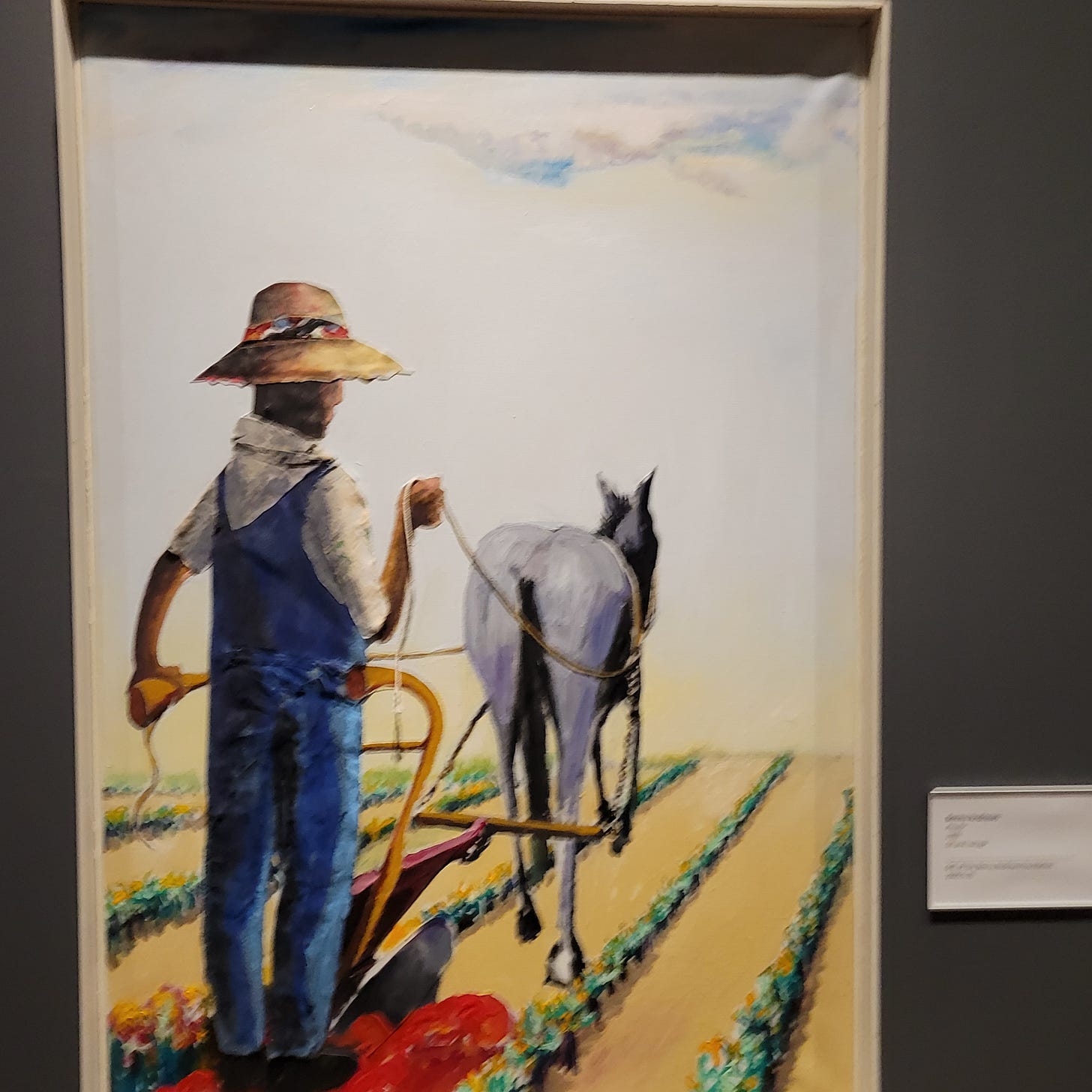
Benny Andrews, the artist:
What about “Mul___o”?
Mul___o4 was a Southern racist term for a person with one White and one Black parent. Superficially, it seems related to mule because of: 1. The first three letters; and 2. a mule is a hybrid, and so use of this term captured the dehumanization of Black people by treating them as a different species. However, the origin of the term is actually not clear, with mule being only one of several possibilities. The term "mul___o" also possibly has Arabic, Portuguese, or Spanish origins unrelated to mules. It is also deemed offensive in some cultures but not in others.
Regardless, this term only applied to people commonly now called biracial, and not to Black people generally. My paper did not mention either this term or biracial people. Whatever the origins of the term, it would require intellectual contortions to render it relevant to this controversy.
Taking Offense at Real vs. Concocted Bigoted Tropes
The master race. Referring to nonwhite peoples as “savages.” “Whiteness” as used throughout academia to refer to something malicious. I cannot fault anyone for taking offense at use of such tropes.
But not everything that someone can concoct as some “association” with bigotry is a trope. And make no mistake, critical social justice types can “associate” almost anything with bigotry, including dogwalking, commenting on beautiful days, and Mahatma Gandhi. Consider this comment on my 1400 Academics Denounced Me as a Racist for Using a Quote from Fiddler on the Roof essay:
Yes, let’s imagine such a debate. Let’s say someone else commented, “Jussim sure has a nose for racist tropes!” I would be annoyed at this, because I did not use a racist trope. However, not even on my radar would be “This comment is the height of antisemitism.” Anyone who did have such a reaction would be plausibly characterized as a delusional loon. I mean, if someone is offended, they are offended, but this, by itself, provides literally no reason whatsoever for anyone else to take their offense seriously. From The Orwelexicon:
But let’s consider a more reasonable example. On this podcast, Yoel Inbar tries hard to grant Roberts’ empathic credibility. In it, he crafts what might be a “shoe on the other foot” test" (“How would you react if it happened to you?”). He describes a scifi story in which the heroes battle an evil cabal of conspirators secretly controlling governments, media, and corporations. I do not think he could be faulted for having a certain, “Ew, this story is beginning to sound like classic antisemitic conspiracy theories” [this is my short summary of his analysis, not a quote from him]. From the early 20th century Russian forgery, The Protocols of the Elders of Zion, through the actual mid-20th century Nazis, to modern memes and tropes common on the far right, cabals of Jews secretly pulling the strings of power have a long and ugly history and can be readily found today. This is a trope and it is both common and very much alive.
However justified Yoel may be here, it is vastly different from my thematic point, even in the out-of-context excerpt that was held up as a racist smoking gun. I argued that researchers who wish to focus on understudied populations progressives deem warranting of reparative attention are welcome to do so. But to claim that they are doing more rigorous science or more to “diversify” psychology than those whose work focuses on samples vastly more representative of whole populations is as disingenuous as when, in Fiddler on the Roof, “He sold him a horse, but delivered a mule.” The crucial difference between Yoel’s example and mine is that he referred to an actual trope (a “common and overused” theme, still live today), whereas the “racist mule trope” is a story in the antiracist narrative style concocted by a propaganda expert masquerading as a scientist.
Here are the top hits in a Google search for “Jews conspiracy”":
Here are the top hits in a Google search for “Blacks mules”:
Who Else Shall We Denounce for “Dehumanization”? Start Here
Explain Why the Language Police are not Coming for Brian Nosek
Nosek is a bigtime influence in replication and reform of scientific practices in psychology (and has done some excellent work). Here is one of his comments at Mastodon (an alternative social media site to which some academics fled in terror and revulsion at Musk’s takeover of Twitter) regarding the PoPS/Roberts Fiasco.
“Savage” is an actual well-known racist trope.5 "Civilized" Europeans routinely referred to the various non-European peoples they conquered as savages. So why no denunciation? Because this is a political, not scientific movement. In politics, anything goes, including rank hypocrisy.
Also:
Is glorifying rhetorical savagery the new route to “improving the research culture in psych”? If this is “inclusion,” one can understand why many want nothing to do with it.
Matter-of-factness is a good tone description of Roberts’ denunciation. Presenting this type of social justice bullshit matter-of-factly does manage to camouflage its stink, making it delightfully delectable to many illiberal academics.
Conclusion
The Critical Social Justice turn in academia “centers” narrative. From Delgado, R. & Stefancic, J. (2001). Critical race theory: An introduction:
“For the critical race theorist, objective truth, like merit, does not exist, at least in social science and politics. In these realms, truth is a social construct created to suit the purposes of the dominant group.” (LJ: I cannot resist commenting here: The extent to which this statement applies to this situation is deliciously ironic).
“The narrative turn and storytelling scholarship seem well on their way toward acceptance…”
And Lord, Roberts crafted a douzy, didn't he? In this battle, I got crushed (at least if the academic outrage mobsters were the judges), like losing a tennis match 6-0, 6-0. In self-officiated matches, each player calls the balls in or out on their side of the net. So this was like playing a match where one is crushed by an opponent who calls every ball you hit 3 feet inside the line “Out!” all the while being wildly cheered on by adoring fans. But this is not mostly about Roberts. Hell, the world is filled with liars and propagandists. The most damning part of this episode is the wildly cheering fans, the academics engaged in full-throated disregard for the facts they can see (or, in this case, do not see) with their own eyes.
You didn't know the trope because there is no trope. If you think you did but only after Roberts pointed it out, there is a well-known psychological phenomenon describing that: Hindsight bias. Roberts crafted the “trope,” if not exactly out of whole cloth then out of a few strands of thread. If you believe I am wrong here, go for it. All you need to show is that there is a non-archaic “common and overused” treatment of Black people as mules. Something like The Protocols of the Elders of Zion, the dog-Netanyahu leading Trump NYTimes cartoon, and the codewords and memes about Jews that you can find here.
I predict that you won’t do it even if you think such a thing exists. Because you can’t. Because the “trope” doesn’t exist.
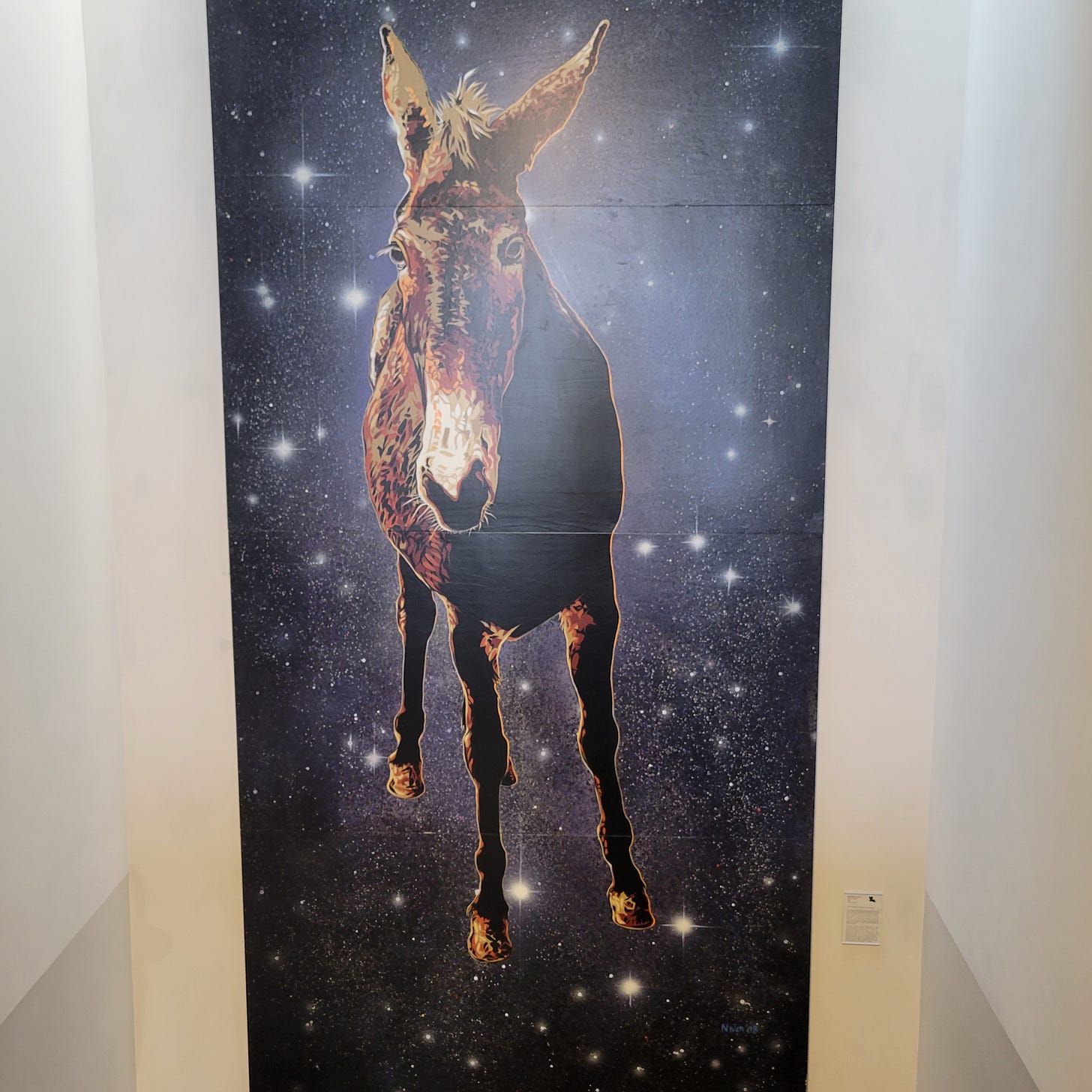
As academia fully embraces political activism and infusing its “scholarship” with unfalsifiable progressive dogmas and presumptions (gap=discrimination, parasitic whiteness, pervasive discrimination and “isms”), one can expect papers characterized by deepfake methodology to become “progressively” (so to speak) more common.
Although this does not mean everything that emerges from academia is nonsense, it does mean that the amount of propaganda disguised as “scholarship” is likely to accelerate for the foreseeable future. Or, as I put it here, it is going to get worse before it gets worse.
Footnotes
The exact quote from the open letter denouncing all of us is: “Give Dr. Roberts the option to have his outstanding and important commentary published in PoPS, with the 4 other articles in question available only as supplementary online material for context, and grant him any additional reparative action he might deem necessary.”
“Association.” Blame academics’ delusionary beliefs that they can spot “hidden” or ”subtle” racism on the implicit association test (IAT) which treats associations as racism and which popularized the notion of “unconscious racism.” I warned of this at NSF in 2017, at a special conference on the controversies surrounding the IAT and implicit bias. Slide presented at a conference :
This is not THE racial slur. It is, instead, an older five letter word referring to Black people, which, even when used in historical context, may be found offensive by some.
The middle three letters not shown are those of a famous telecommunications company. See Footnote 2 for, essentially, the same explanation for a different word being partially edited out.
Nosek’s “savage.” Of course, “savage” also means brutal and harsh. I am quite confident Nosek was not alluding to some sort of racist trope and I do not think he should be denounced. The point is the hypocrisy, not “yeah, unleash the Language Police” — who, imho, should be completely defunded.





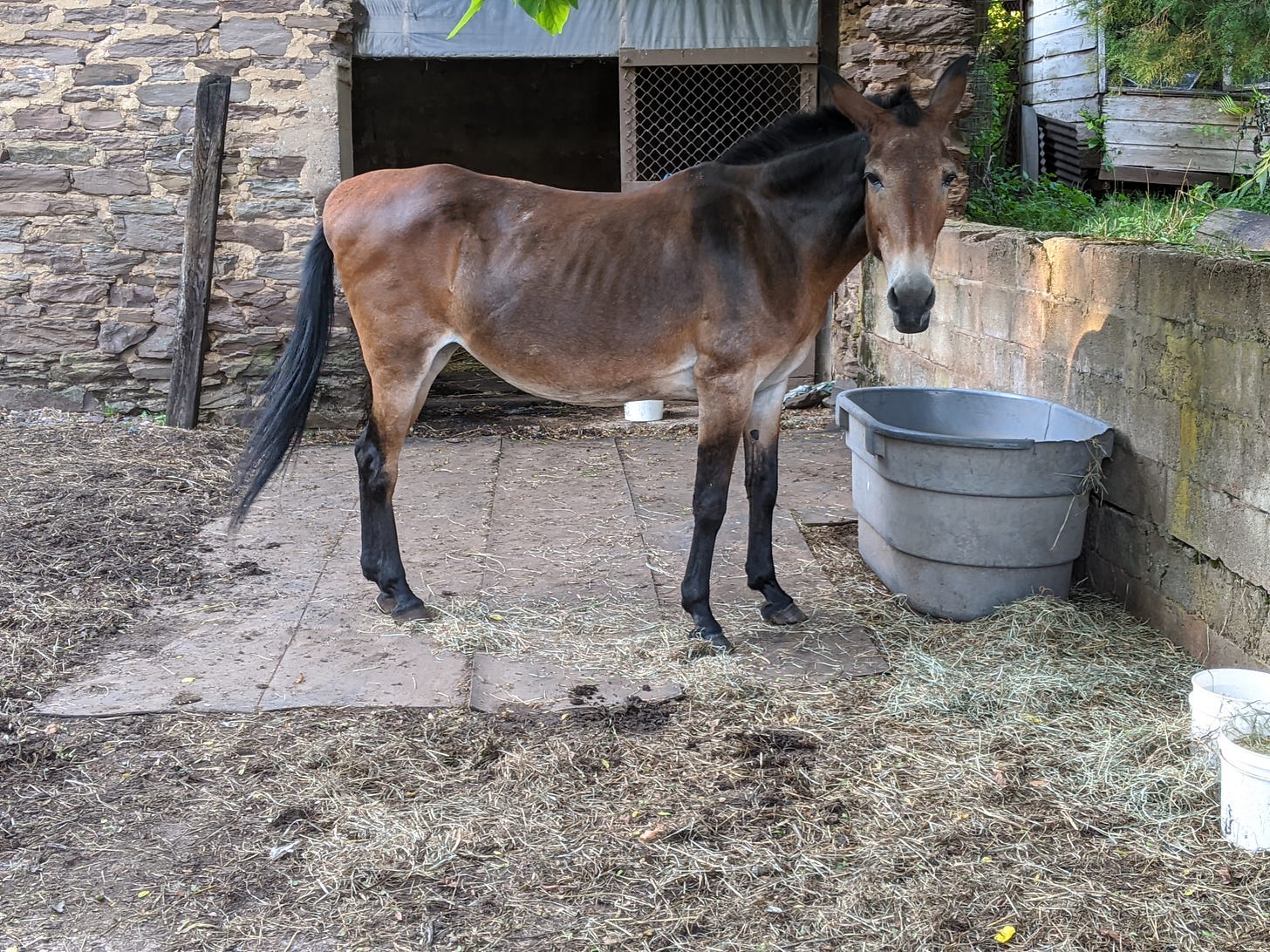

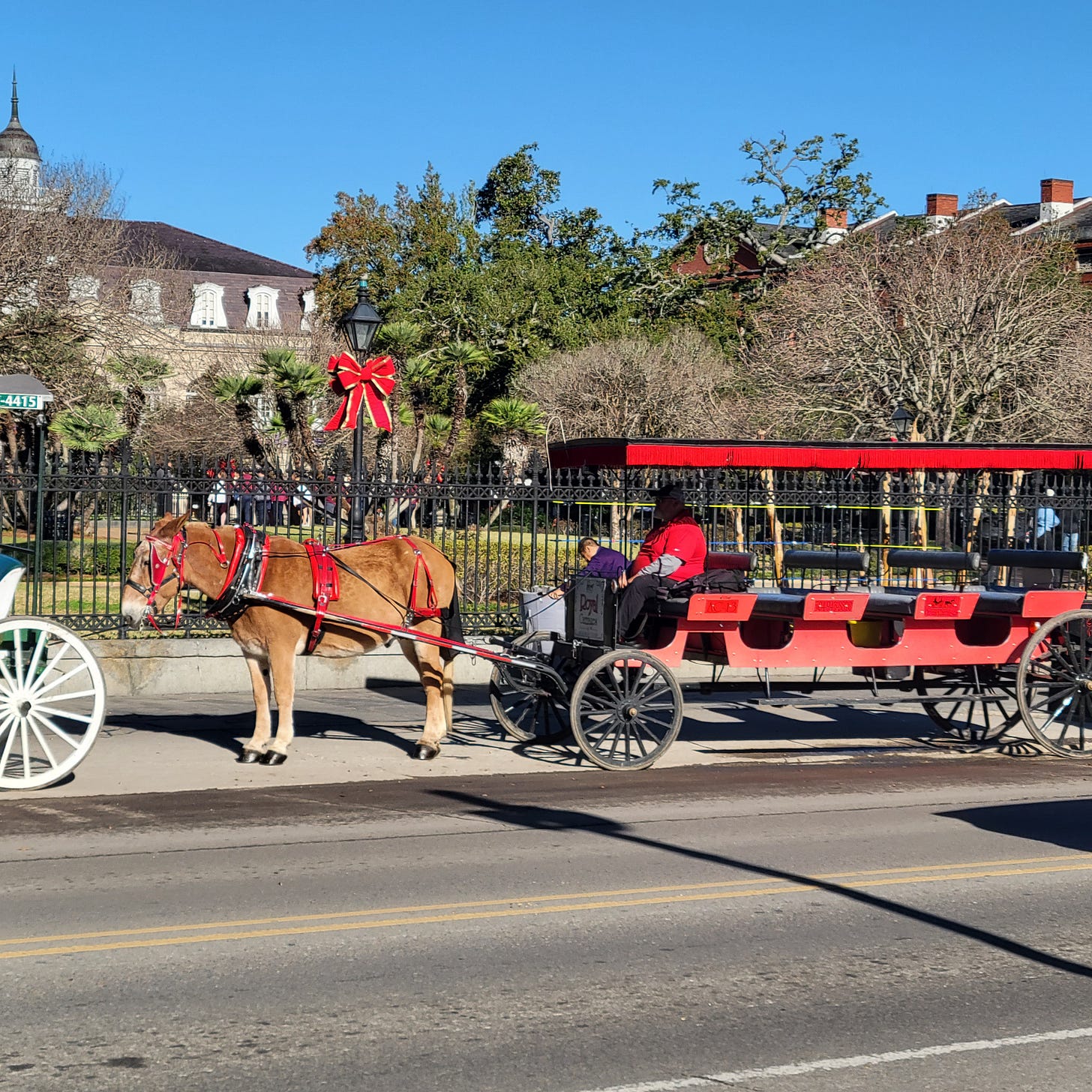










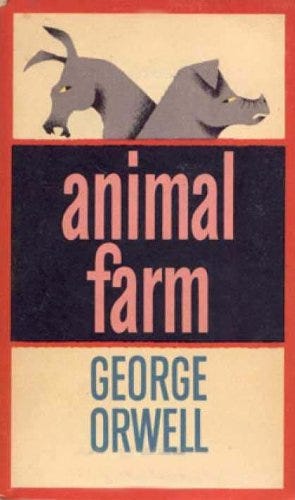



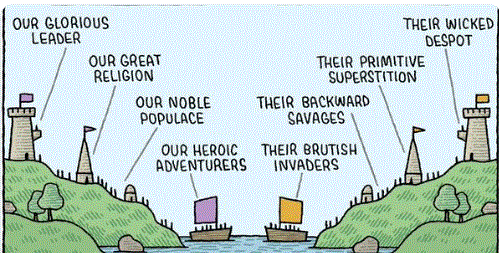


As informative as this is, you might have better responded to the fellow at first with "Now mules are racist? You're a jackass."
This whole business is absolutely stark raving bonkers.